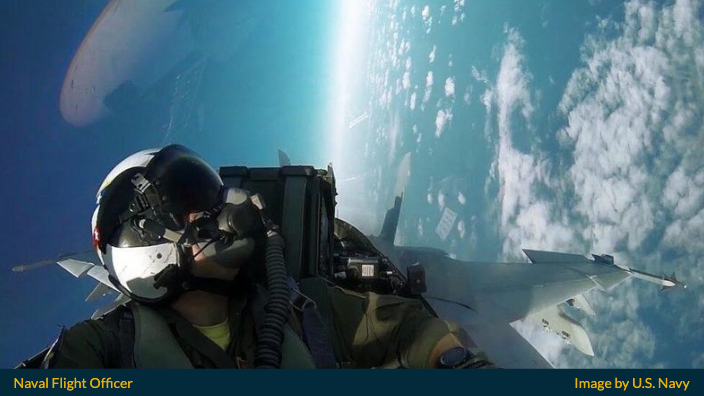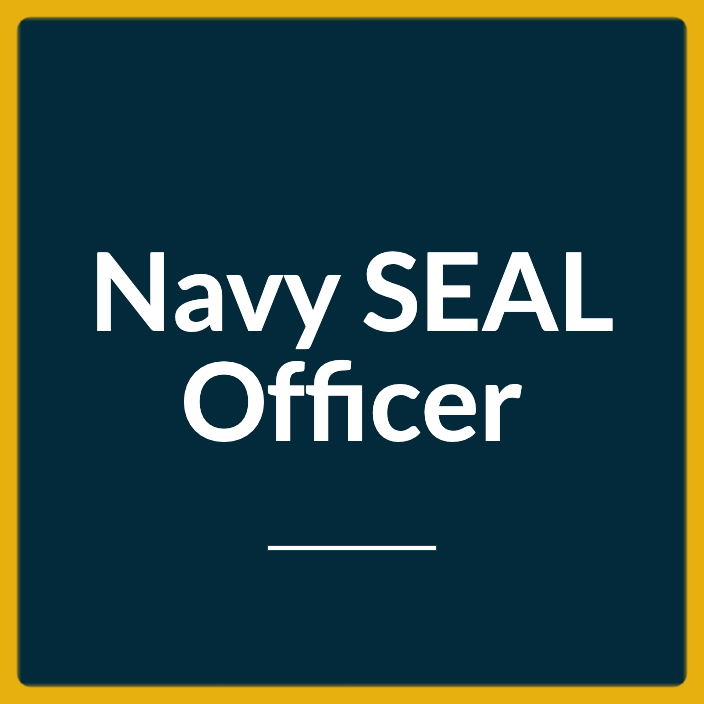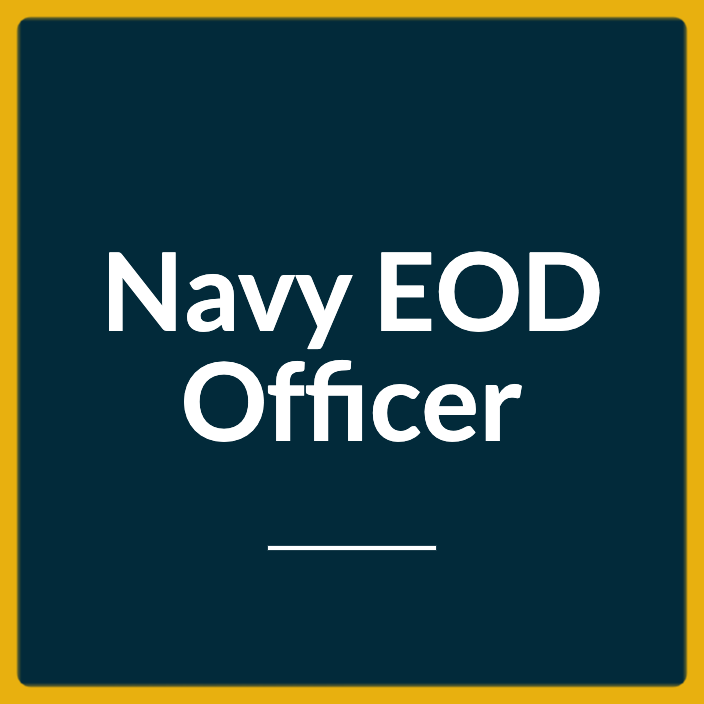Last Updated on October 14, 2024
Thinking about becoming a Naval Flight Officer (NFO) in Fiscal Year 2025? This guide is here to help you make that choice.
A Naval Flight Officer (NFO) is an Unrestricted Line Officer in the United States Navy who is an expert in flight planning, aircraft engine systems, navigation, aircraft safety, meteorology, and aerodynamics. The Navy designator code for NFO is 1320.
NFOs are right at the heart of the action, working with the world’s most powerful aviation fleet—over 6,000 aircraft strong. Whether you’re part of a fighter jet squadron, flying attack missions, or working with helicopters to hunt submarines, you’ll be mission-ready wherever you’re needed, whether it’s launched from land or a sea platform.
For those with the perfect mix of skill and passion, becoming an NFO is one of the most exciting and rewarding roles in Navy aviation.
Now, let’s dig deeper into what it takes and what the training looks like. Ready to explore the details?
What Does A Naval Flight Officer Do?
Naval Flight Officers are commissioned officers in the United States Navy. They hold a primary role in naval aviation, but they are not pilots. They fill the “co-pilot” role, depending on the type of aircraft.

They typically function as tactical coordinators, radar intercept officers, or airborne electronic warfare specialists.
NFOs are experts in aircraft engine systems, navigation, meteorology, aerodynamics, flight planning and aircraft safety. They are leaders of Sailors in the naval aviation community.
Naval Flight Officer Training
NFOs undertake rigorous training on the advanced tactical systems and complex communications systems employed by Navy aircraft.
NFOs train and specialize in specific aircraft, including:
• Strike: EA-18G Growler electronic countermeasures aircraft
• Strike Fighter: F/A-18 Hornet and Super Hornet jet fighters
• Advanced Radar Navigation and Airborne Early Warning System: E-2C Hawkeye early warning and control aircraft
• Advanced Navigation: P-3C Orion and P-8 Poseidon anti-submarine aircraft
Officer Candidate School (OCS)
Prospective Officers attend a 12-week Navy orientation course called Officer Candidate School or OCS that develops knowledge of the naval profession and helps make the transition from civilian life to Navy life.
Graduates of the U.S. Naval Academy and Naval Reserve Officer Training Corps (NROTC) do not attend Navy OCS.
Academic and military training at OCS are difficult and intense. Good study habits, self-discipline, and physical fitness conditioning are required.
Course subjects include Programs and Policies, Sea Power, Engineering and Weapons, Damage Control, Naval Orientation and Warfare, Leadership, Naval Orientation and Seamanship, Navigation and Military Law.
Before Navy OCS graduation and commissioning as a Navy Officer, candidates receive an assignment to an aviation training squadron.
Squadron assignment depends partly on whether the new officer is learning to be a Naval Flight Officer or a Navy pilot. NFO training squadrons are located at Sherman Field, Pensacola, FL.
Aviation Training Pipeline
There are 4 training pipelines for Naval Flight Officers, namely:
- Strike Fighter
- Airborne Early Warning (AEW)
- Maritime Patrol (MPR)
- Take Charge and Move Out (TACAMO)
All 4 training pipelines are conducted at Training Air Wing Six in Naval Air Station Pensacola in Pensacola, FL.
How To Become A Naval Flight Officer
If you are interested in becoming a Naval Flight Officer, you must first be aware that earning a commission in the United States Navy is very competitive, especially in naval aviation.
You must determine if you meet the initial requirements to obtain a commission in the United States Navy. So, apply early – approximately 12 months before you graduate from college – as openings are limited and fill up quickly.
To become a Naval Flight Officer, you must be an American citizen between 19 and 32 years old with at least a Bachelor’s degree and pass the Aviation Selection Test Battery (ASTB) exam.
Note that this is slightly different from applying for a civilian aviation position because Naval Flight Officers directly affect national security. Know that you will be held to a higher standard of performance and behavior compared to civilian counterparts.
If that did not deflate you, you may have the right sense of pride and integrity for this job.
Below are basic information you will need to know before applying. There will be more requirements during the application process, but these will get you in the door.
Contact your local Navy Officer recruiter for a more personalized assessment and support.
The application criteria for NFO below are current as of November 2023, per the Navy Personnel Command. There are no updates issued so far.
NFO Basic Eligibility Requirements
| Citizenship | You must be a United States citizen either by birth or naturalization to apply for a commission as an NFO. |
| Gender | The Naval Flight Officer program is open for both men and women. |
| Age | NFO applicants must be at least 19 years old and must not be older than 32 years old upon commissioning. |
| Education | NFO applicants must hold at least a Bachelor of Arts or Bachelor of Science degree from an accredited college or university. |
| Physical | NFO applicants must be physically qualified and aeronautically adapted to engage in duties involving flying in line with the Navy physical standards. |
| Aptitude | Aviation Selection Battery Test (ASTB) minimum qualifying scores are: Academic Qualifications Rating (AQR) – 4 Flight Officer Flight Aptitude Rating (FOFAR) – 5 |
| Security Clearance | Candidates are required to meet the eligibility standards set forth by the Director of National Intelligence under Intelligence Community Directive 704 (ICD 704). These standards are crucial for gaining access to Sensitive Compartmented Information (SCI) and Special Access Programs (SAPs). It is important to note that these security requirements are stringent and cannot be waived under any circumstances. Compliance with ICD 704 is a mandatory prerequisite for candidates who wish to access classified information critical to national security. |
The most crucial requirement that you can fully control is your ASTB score. It is the primary objective criteria upon which all applicants are compared against.
To maximize your chances of obtaining an exceptional ASTB score, we only recommend this ASTB Study Guide for your success. All others are mediocre at best.
Immediate Selection Criteria
Under the guidelines established by OPNAVINST 1120.13 (series), officer applicants who fulfill the immediate selection criteria can bypass the standard Professional Recommendation (PROREC) board for Officer Candidate School (OCS).
Upon a review by the Officer Community Manager, these applicants will be expedited for deployment to OCS. To qualify for immediate selection, officer applicants must adhere to the following requirements:
- Policy Compliance: Candidates must not necessitate any waivers or exceptions to existing policies.
- Academic Achievement: Applicants must possess a Grade Point Average (GPA) of 3.0 or above on a 4.0 scale.
- Naval Flight Officer (NFO) Selection Scores: For immediate selection as an NFO, applicants are required to have ASTB scores of at least 6 on the AQR, 6 on the PFAR, and 6 on the FOFAR.
- Designator Preference: The applicant must prioritize either NFO as their top choice. If a candidate has listed Pilot as their first choice and NFO as their second, but only satisfies the criteria for NFO, they will be promptly offered a position as an NFO. Should the applicant decide against this offer, their application will be deferred to the subsequent OCS PROREC board for review.
Waivers
If an applicant exceeds the maximum age limit but possesses an outstanding record or a set of skills deemed essential by the Navy, there may be an opportunity for a waiver.
This exception is available only to candidates who are not part of the immediate selection process.
It’s important to note that this is the only type of waiver that may be considered, with no allowances for other deviations from the standard requirements.
Who May Apply
The sources for accession into this program are as follows:
a. Civilians are eligible provided they have not previously been removed from any military flight training program, except where the reason for disenrollment was a minor medical condition that was only temporarily disqualifying.
b. Enlisted members of the Navy, whether active or reserve, who have not been previously removed from any military flight program, are eligible to apply.
c. Enlisted members from other branches of the U.S. armed services, both active and reserve, are also eligible, provided they have not been previously removed from any military flight program. These candidates must have a conditional release from their parent branch or possess written authorization from an official within their branch to apply for this program.
d. Active or reserve officers, as well as former officers from other branches of the armed services, are not eligible to apply for the officer candidate program under this specific Program Authorization.
Service Obligation
Student naval flight officers, carrying the designator code 1370, have a mandatory service period of at least 6 years on Active-Duty, commencing from the moment they achieve their designation as Naval Flight Officers (designator 1320).
For candidates who are removed from flight training before achieving their official designation, the Active-Duty service requirement will be aligned with the guidelines set for officers who are disenrolled from specialized Navy training programs, as detailed in the Military Personnel Manual (MILPERSMAN) 1540-010.
Upon Selection
Selected individuals will be trained at Officer Candidate School (OCS) located in Newport, Rhode Island. Upon successful commissioning, officers typically proceed to undergo training specific to their designated role, as directed by the Chief of Naval Air Training.
For civilians and enlisted applicants who are currently at the E-4 paygrade or below and are chosen for this program, they will be appointed as officer candidates and promoted to the E-5 paygrade upon their arrival at OCS.
Enlisted applicants who are already at the E-5 paygrade or higher will retain their current paygrades as they transition to officer candidate status.
From the beginning of their OCS training, officer candidates are entitled to receive pay and benefits that correspond to their paygrades.
More Information
If you want more information about becoming a Naval Flight Officer, the next logical step is to contact a Naval Officer Recruiter.
Let us start figuring out how you can benefit from becoming a Naval Flight Officer – or if it is even the right career move for you.
You may also find more information about other closely related Navy Officer jobs in our Quick Guide for Unrestricted Line Officer programs, such as the Navy Pilot and Navy Surface Warfare jobs. Check them out.
Lastly, if you wish to fly Navy drones instead, check out the Navy Air Vehicle Pilot job.

